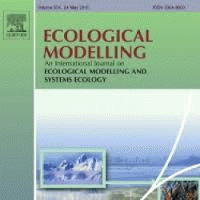DOI:
http://dx.doi.org/10.1016/j.ecolmodel.2017.03.015Altmetric score:
Dimensions Citation Count:
Publication year
2017
Authors
Tonnang, H.E.Z.; Hervé, B.D.B.; , Biber-Freudenberger.L.; , Salifu.D.; , Subramanian.S.; , Ngowi.V.B.; , Guimapi.R.Y.A.; , Anani.B.; , Kakmeni.F.M.M.; , Affognon.H.; , Niassy.S.; , Landmann.T.; , Ndjomatchoua.F.T.; , Pedro.S.A.; , Johansson.T.; , Tanga.C.M.; , Nana.P.; , Fiaboe.K.M.; , Mohamed.S.F.; , Maniania.N.K.; , Nedorezov.L.V.; , Ekesi.S.; , Borgemeister.C.
Keywords
Population dynamics, Agricultural production, Phenology, Synchronization























